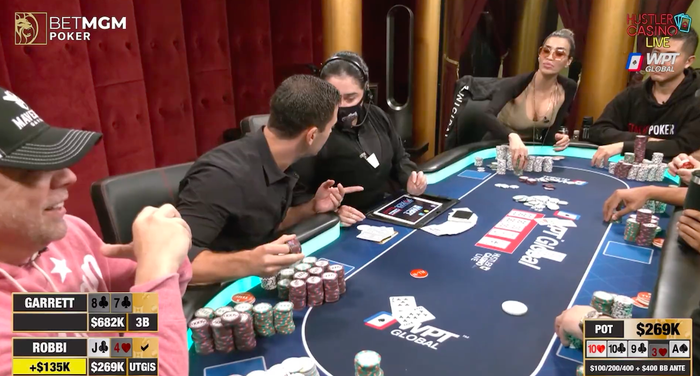How to Play Poker Like a Pro

Poker is a card game that requires a lot of skill and knowledge. It’s a good way to socialize and it can also be a great money-making hobby. It can be frustrating, too, if you’re new to the game. But if you keep playing and work on your strategy, you’ll soon become a pro.
There are a few fundamental things you need to know before you start playing poker for real money. You need to know the rules, how the cards are dealt and the odds of winning. You should also learn how to choose the right stakes and tables for you.
Learn to read the board – This is a very important part of poker and can be a bit tricky but once you get the hang of it, you’ll be able to spot a lot of different hands. You should pay attention to the flop, turn and river. The flop gives you an idea of what hands your opponents are holding and the turn and river reveal their strength.
When betting on the flop, try to be cautious and avoid making any big bets. This will help you to control your stack and ensure that your opponents don’t fold too many of their strong hands. You should also call if you think your opponent has a weak hand, as this can give you an advantage over them.
You can even bet a small amount of chips with a strong hand in order to get them to fold. This will not only protect your stack but will also increase your chances of winning the pot as well.
Play your sizing correctly – There are three factors that can make a difference in how much you win at poker: the size of your raise, your stack sizes and your opponents’ sizing. These factors can be influenced by your strategy and your opponent’s strategy, so it is a good idea to keep them in mind when you are choosing how much to raise.
Control your aggression – When playing poker, you should always be aware of your own emotions. It’s easy to get into a bad mood, but it’s important to keep in mind that you can only perform at your best when you feel comfortable and happy.
Don’t get cocky – If you are new to the game, it can be tempting to go all in on a hand that has a low chance of winning. However, it’s a common mistake for beginners to do so. Instead, it’s usually better to check and call.
If you are betting too much, your opponents will be tempted to fold, which means they’ll miss out on the potential payout of a big pot. This can be a huge mistake, as it will leave you in a worse position than if you had a smaller bet.
Play the player – Once you’ve learned the fundamentals of poker, it’s time to start paying close attention to your opponents. This doesn’t mean that you need to look at their physical poker “tells”, such as scratching their nose or nervously shaking with their chips, but it can be as simple as their patterns of play.